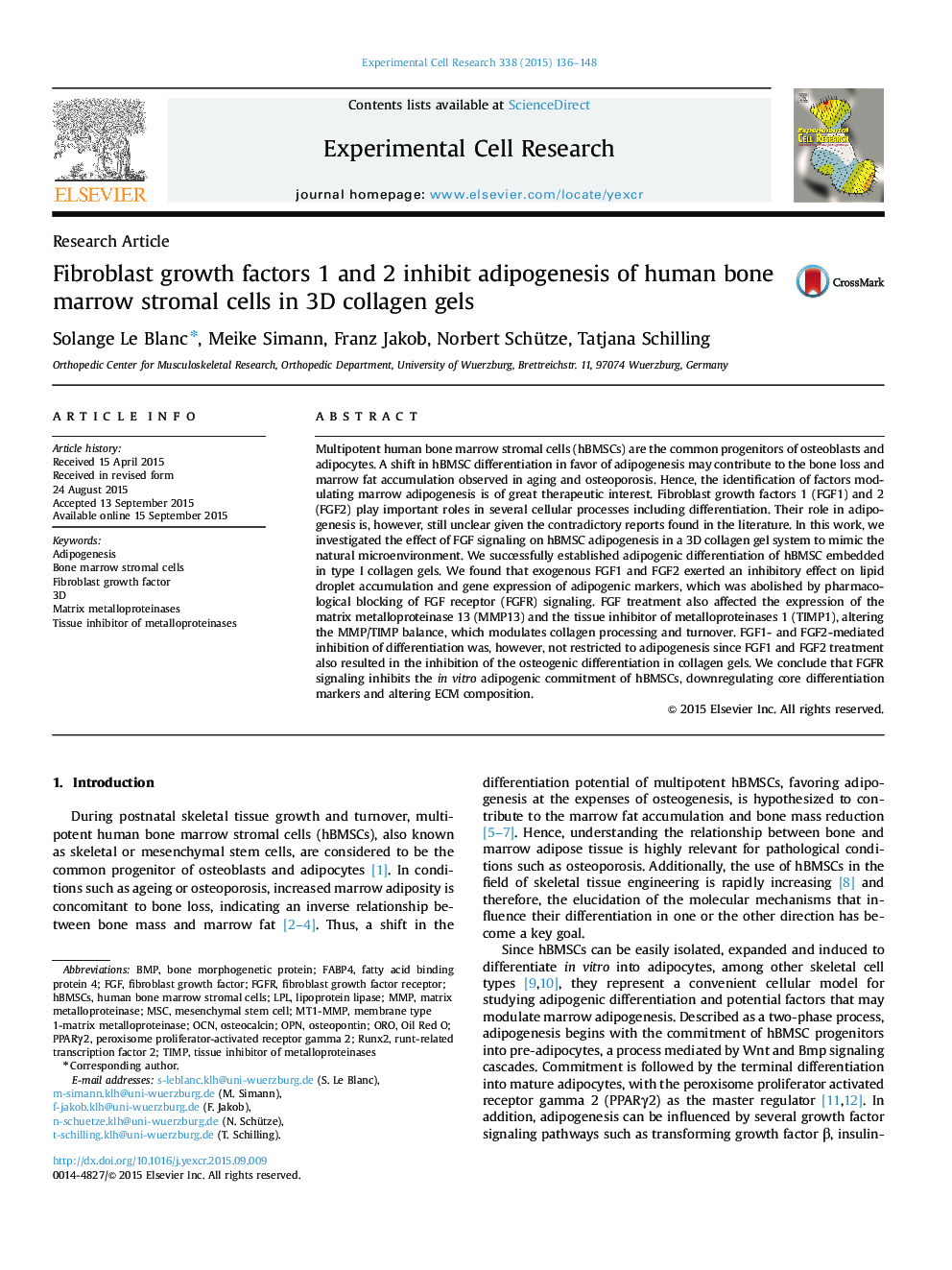| کد مقاله | کد نشریه | سال انتشار | مقاله انگلیسی | نسخه تمام متن |
|---|---|---|---|---|
| 2130106 | 1086528 | 2015 | 13 صفحه PDF | دانلود رایگان |

• Adipogenic differentiation of hBMSC embedded in 3D collagen gels was established.
• FGF1 and FGF2 inhibited adipogenic differentiation of hBMSC in 3D collagen gels.
• FGFR signaling was not necessary for adipogenic differentiation of hBMSC.
• FGF treatment during adipogenic induction affected the MMP/TIMP balance.
• FGF1 and FGF2 inhibited terminal osteogenic differentiation in collagen gels.
Multipotent human bone marrow stromal cells (hBMSCs) are the common progenitors of osteoblasts and adipocytes. A shift in hBMSC differentiation in favor of adipogenesis may contribute to the bone loss and marrow fat accumulation observed in aging and osteoporosis. Hence, the identification of factors modulating marrow adipogenesis is of great therapeutic interest. Fibroblast growth factors 1 (FGF1) and 2 (FGF2) play important roles in several cellular processes including differentiation. Their role in adipogenesis is, however, still unclear given the contradictory reports found in the literature. In this work, we investigated the effect of FGF signaling on hBMSC adipogenesis in a 3D collagen gel system to mimic the natural microenvironment. We successfully established adipogenic differentiation of hBMSC embedded in type I collagen gels. We found that exogenous FGF1 and FGF2 exerted an inhibitory effect on lipid droplet accumulation and gene expression of adipogenic markers, which was abolished by pharmacological blocking of FGF receptor (FGFR) signaling. FGF treatment also affected the expression of the matrix metalloproteinase 13 (MMP13) and the tissue inhibitor of metalloproteinases 1 (TIMP1), altering the MMP/TIMP balance, which modulates collagen processing and turnover. FGF1- and FGF2-mediated inhibition of differentiation was, however, not restricted to adipogenesis since FGF1 and FGF2 treatment also resulted in the inhibition of the osteogenic differentiation in collagen gels. We conclude that FGFR signaling inhibits the in vitro adipogenic commitment of hBMSCs, downregulating core differentiation markers and altering ECM composition.
Journal: Experimental Cell Research - Volume 338, Issue 2, 1 November 2015, Pages 136–148